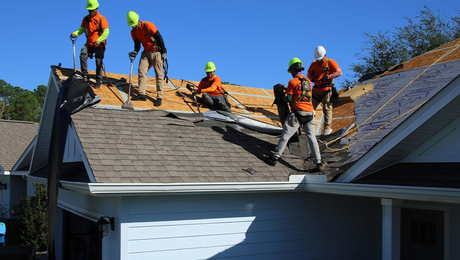*
Hi –
An article in the Aug/Sept 99 FH discusses the merits of 4-wire vs. 3-wire cable for stoves or dryers. I’m wondering how a 3-wire, bare neutral stove cable is dangerous, as the voltage on the neutral is 0 when the circuit is completed (at least under normal conditions where the voltage is dropped thru a load). And if there were a short causing the neutral to go hot, wouldn’t the breaker immediately trip? How would you get a shock on the neutral?
Electricians, set me straight here!!















Replies
*
rg, Keep in mind that these appliances are actually 120/ 240 volt and the "neutral" carries current in normal operation. The code basically says that any current carrying wire beyond the service entrance must be insulated and the appliance must have it's own separate grounding wire running back to the panel. A poor neutral connection and a short in the old system could be dangerous. Just another layer of safety.
*
In other words, the neutral might not be.
It only takes milliamps to kill you, so bonding the neutral to the stove is not as good as bonding a true ground, which will be at the same state as everything else grounded in the kitchen, including the plumbing, the gas line, etc. This is why neutral and ground are not allowed to be bonded except at the main panel, and that includes subpanels -- there should only be one path to ground, preferably not through a human.
(Why would you have 240 volts to the stove and gas too, some wag might ask? Some cooks insist an electric oven and gas cooktop are the perfect combination.)
*
Hi -
An article in the Aug/Sept 99 FH discusses the merits of 4-wire vs. 3-wire cable for stoves or dryers. I'm wondering how a 3-wire, bare neutral stove cable is dangerous, as the voltage on the neutral is 0 when the circuit is completed (at least under normal conditions where the voltage is dropped thru a load). And if there were a short causing the neutral to go hot, wouldn't the breaker immediately trip? How would you get a shock on the neutral?
Electricians, set me straight here!!